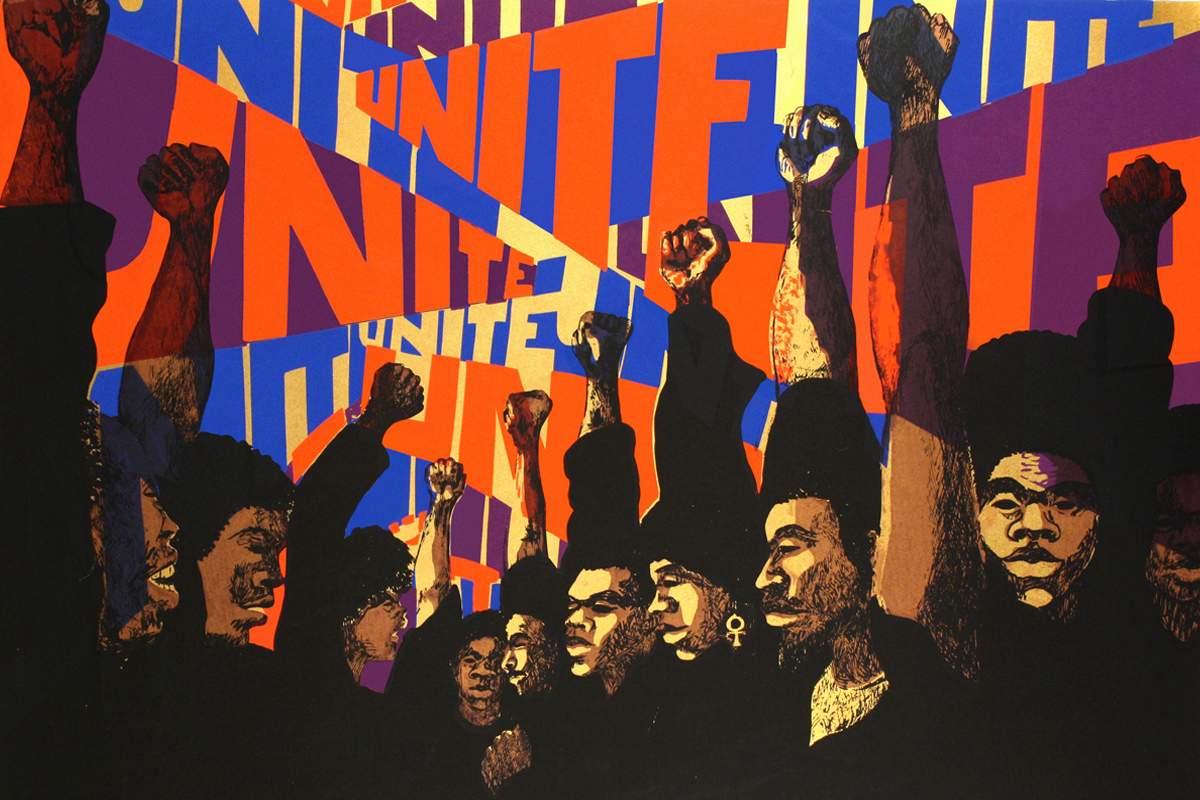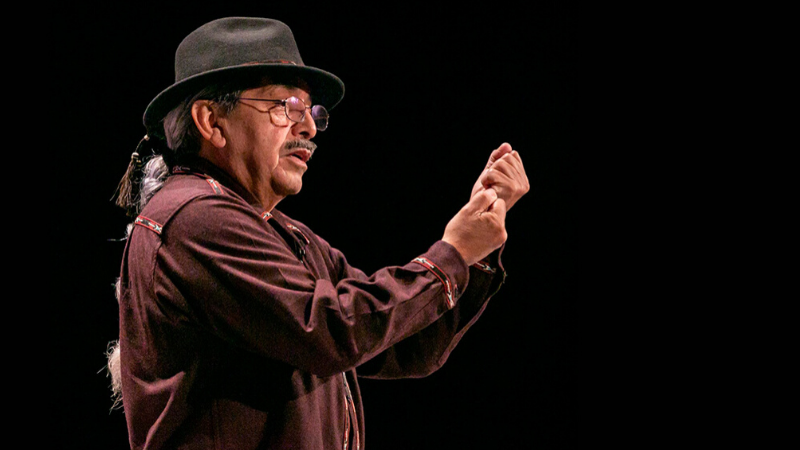"We strongly reject and condemn these actions that harm the close, long-standing relations between the two friendly nations," Ahmed Mulla Talal wrote in a statement published to Telegram, urging for an "immediate" halt to Ankara's offensive.
Saturday, July 04, 2020
Did Mustafa al-Kadhimi just buy himself a little more time?
"We strongly reject and condemn these actions that harm the close, long-standing relations between the two friendly nations," Ahmed Mulla Talal wrote in a statement published to Telegram, urging for an "immediate" halt to Ankara's offensive.
#AliciaKeys #PerfectWayToDie #RnB Alicia Keys - Perfect Way To Die (Official Video)
Robin D. G. Kelley: How Depression-era Communists Fought to Organize Alabama
The Place of the Two American Revolutions in the Past, Present and Future
TRUMP'S IMMIGRATION ORDER: FAST TRACK TO AN ABUSIVE PAST by David Bacon
|
| |||
Free City Radio (Canada) interview: journalist David Bacon on solidarity with Iraqi unions and labour's role in activism
https://soundcloud.com/freecityradio/journalist-david-bacon
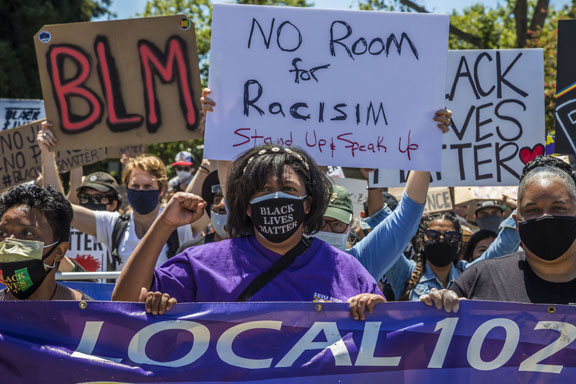
LABOR MARCH PROTESTS THE POLICE MURDER OF GEORGE FLOYD
BERKELEY, CA - 13JUNE20 - Hundreds of union members and outraged people march through the streets of Berkeley to protest the police murder of George Floyd in Minneapolis, and other African American and people of color killed by police. The march was organized by the labor councils of Alameda, San Francisco, Contra Costa and San Mateo Counties, and Service Employees International Union Local 1021.
To see a full set of photos, click here: https://www.flickr.com/photos/56646659@N05/albums/72157714734338062
STUDENTS MARCH TO PROTEST THE POLICE MURDER OF GEORGE FLOYD
BERKELEY, CA - 09JUNE20 - Hundreds of students, teachers and outraged people march through the streets of Berkeley to protest the police murder of George Floyd in Minneapolis, and other African Americian and other people of color killed by police.
To see a full set of photos, click here: https://www.flickr.com/photos/56646659@N05/albums/72157714656895057
HUGE CAR CARAVAN PROTESTS THE POLICE MURDER OF GEORGE FLOYD
OAKLAND, CA - 31MAY20 - Thousands of people participate in a caravan of over 2000 cars from the Port of Oakland, to protest the police murder of George Floyd in Minneapolis, and African American and people of color killed by police.
To see a full set of photos, click here: https://www.flickr.com/photos/56646659@N05/albums/72157714533842187
IN THE FIELDS OF THE NORTH
Online Exhibit, May 29 to August 2, 2020
Los Altos History Museum
https://www.losaltoshistory.org/exhibits/in-the-fields-of-the-north/
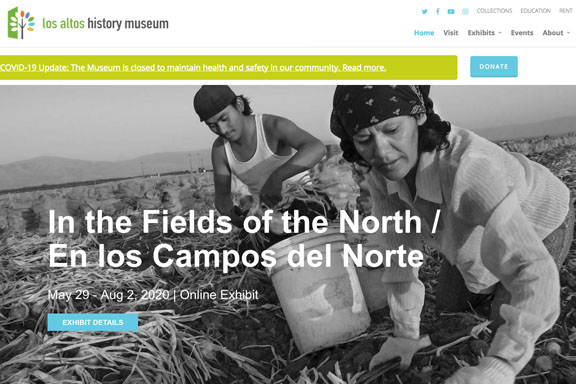
TAKE A VIRTUAL TOUR OF THE EXHIBITION - IN THE FIELDS OF THE NORTH
at the History Museum of Tijuana
HAGA UN RECORRIDO VIRTUAL DE LA EXPOSICIÓN - EN LOS CAMPOS DEL NORTE
en el Museo de Historia de Tijuana
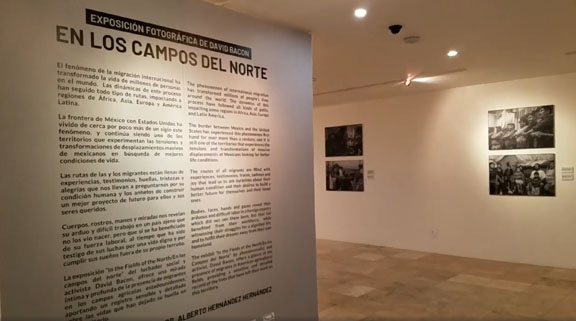
https://www.facebook.com/watch/?v=659536991515786
TARTINE HARDSHIP FUND
Newly organized Tartine Bakery workers in the Bay Area need your help and assistance! This fund, supported by the International Longhsore and Warehouse Union, will help hose workers unable to collect unemployment insurance.
The exhibitions in the following list were scheduled before the current COVID-19 crisis. Public gatherings are not now taking place and these exhibitions have now been postponed or rescheduled.
Stay healthy!
IN THE FIELDS OF THE NORTH / EN LOS CAMPOS DEL NORTE
Online exhibition until August 2
Los Altos History Museum, Los Altos
March 21, 2021 - May 23, 2021
Carnegie Arts Center, Turlock
MORE THAN A WALL - THE SOCIAL MOVEMENTS OF THE BORDER
August 29,, 2020 - November 29,, 2020
San Francisco Public Library
DEPORTATIONS
Rescheduled for December
Uri-Eichen Gallery, Chicago
In the Fields of the North / En los Campos del Norte
Photographs and text by David Bacon
University of California Press / Colegio de la Frontera Norte
302 photographs, 450pp, 9”x9”
paperback, $34.95 (in the U.S.)
order the book on the UC Press website:
ucpress.edu/9780520296077
use source code 16M4197 at checkout, receive a 30% discount
En Mexico se puede pedir el libro en el sitio de COLEF:
https://www.colef.mx
Los Angeles Times reviews In the Fields of the North / En los Campos del Norte - click here
"The Criminalization of Migration: A Socialist Perspective" with David Bacon and Rafael Pizarro.
http://ouleft.org/wp-content/uploads/David-Bacon-The-Criminalization-of-migration.mp4
A video about the Social Justice Photography of David Bacon:
https://drive.google.com/file/d/14TvAj5nS08ENzWhw3Oxra4LMNKJCLF4z/view
En los campos del Norte documenta la vida de trabajadores agrícolas en Estados Unidos -
Entrevista con el Instituto Nacional de la Antropologia y Historia
http://www.inah.gob.mx/es/boletines/6863-en-los-campos-del-norte-documenta-la-vida-de-trabajadores-agricolas-en-estados-unidos
Entrevista en la television de UNAM
https://www.youtube.com/watch?v=xdSaBKZ_k0o
David Bacon comparte su mirada del trabajo agrícola de migrantes mexicanos en el Museo Archivo de la Fotografia
http://www.cultura.cdmx.gob.mx/comunicacion/nota/0038-18
Trabajo agrícola, migración y resistencia cultural: el mosaico de los “Campos del Norte”
Entrevista de David Bacon por Iván Gutiérrez / A los 4 Vientos
http://www.4vientos.net/2017/10/04/trabajo-agricola-migracion-y-resistencia-cultural-el-mosaico-de-los-campos-del-norte/
"Los fotógrafos tomamos partido"
Entrevista por Melina Balcázar Moreno - Milenio.com Laberinto
http://www.milenio.com/cultura/laberinto/david_baconm-fotografia-melina_balcazar-laberinto-milenio_0_959904035.html
Die Apfel-Pflücker aus dem Yakima-Tal
http://www.nrhz.de/flyer/beitrag.php?id=23990
http://us7.campaign-archive2.com/?u=fc67a76dbb9c31aaee896aff7&id=0644c65ae5&e=dde0321ee7
Entrevista sobre la exhibicion con Alfonso Caraveo (Español)
https://www.youtube.com/watch?v=lJeE1NO4c_M&feature=youtu.be
THE REALITY CHECK - David Bacon blog
http://davidbaconrealitycheck.blogspot.com
Books by David Bacon
The Right to Stay Home: How US Policy Drives Mexican Migration (Beacon Press, 2013)
http://www.beacon.org/productdetails.cfm?PC=2328
Illegal People -- How Globalization Creates Migration and Criminalizes Immigrants (Beacon Press, 2008)
Recipient: C.L.R. James Award, best book of 2007-2008
http://www.beacon.org/Illegal-People-P780.aspx
Communities Without Borders (Cornell University/ILR Press, 2006)
http://www.cornellpress.cornell.edu/book/?GCOI=80140100558350
The Children of NAFTA, Labor Wars on the U.S./Mexico Border (University of California, 2004)
http://www.ucpress.edu/book.php?isbn=9780520244726
En Español:
EL DERECHO A QUEDARSE EN CASA (Critica - Planeta de Libros)
http://www.planetadelibros.com.mx/el-derecho-a-quedarse-en-casa-libro-205607.html
HIJOS DE LIBRE COMERCIA (El Viejo Topo)
http://www.tienda.elviejotopo.com/prestashop/capitalismo/1080-hijos-del-libre-comercio-deslocalizaciones-y-precariedad-9788496356368.html?search_query=david+bacon&results=1
For more articles and images, see http://dbacon.igc.org and http://davidbaconrealitycheck.blogspot.com
and https://www.flickr.com/photos/56646659@N05/albums
Naomi Klein New Economy Prophet
Rep. Ayanna Pressley on Protests, Covid-19, and Police Brutality | RS Interview
How Artists Fuel Social Justice Movements
| |||||||||||||||||||||||||||||||||||||||||||||||||||||||||||||||||||||||||||||||||||||||
| |||||||||||||||||||||||||||||||||||||||||||||||||||||||||||||||||||||||||||||||||||||||
|


